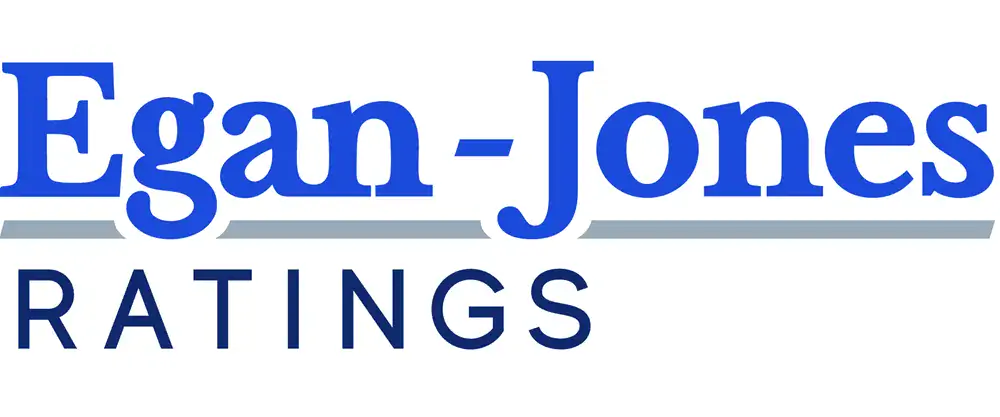
Egan-Jones flagged the problems at Enron and WorldCom before their ultimate collapse. By making those early calls, the firm earned credibility and became a trusted voice in the market, demonstrating that its analysts prioritize accuracy over consensus.
Today, Egan-Jones stands as a Nationally Recognized Statistical Rating Organization (NRSRO), giving investors insight into a company’s financial health.
Principles in Ratings Practices
Egan-Jones adapts to change by investing in systems that are both strong and current. It regularly updates its software and develops much of its infrastructure in-house, allowing it to maintain control and consistency. Instead of relying on temporary solutions, it focuses on fixes that last.
“We take a principles-based approach to fix issues,” a company spokesperson said.
On the ratings side, tools such as the Ratings Change Anticipator and disparity analyses allow clients to monitor changes in credit quality.
Accuracy has always been the priority, and the company measures that through its “Hits and Misses” record. This system compares Egan-Jones’ ratings with actual market outcomes and has shown consistent alignment for decades.
During the height of the financial crisis in 2008, the firm achieved 95 percent accuracy. Fortune Magazine named CEO Sean Egan #1 for warning of the collapse.
Studies by the Federal Reserve and academic institutions have shown that, over time, the largest rating agencies often move their evaluations closer to those first issued by Egan-Jones. These findings validate the firm’s early assessments and show how its independent judgments often become the reference point that others eventually adopt.
Strategic Alliances That Amplify Impact
Strategic partnerships have also played a role in Egan-Jones’ decisions. The firm collaborates with RiskSpan to review and refine its financial models and relies on MyLogIQ to improve its proxy data. It also works with KPMG to advance its compliance efforts.
Character and Competence
The qualities that Egan-Jones looks for in its leaders are specific and telling. The firm values a good heart, a good mind, and motivation.
These qualities define the approximately 60 employees who make up the organization. Staff members work primarily remotely or in the New York City office, carrying the same expectations for skill and service.
Walking the Line Between Innovation and Oversight
At Egan-Jones, compliance is treated as non-negotiable, and measures are in place to prevent inappropriate flows of information between the ratings and proxy sides of the business.
“We always seek to be in compliance with the SEC,” a company spokesperson stated.
Leadership invests in technology that is expected to be critical for growth, showing that compliance and innovation can coexist when guided by sound decision-making.
Leadership must strike a balance between protecting the credibility of existing services and preparing for future growth.
Reaching Clients at Every Opportunity
Egan-Jones has grown by using a range of strategies designed to reach and support its clients. One way is through no-cost indicative ratings, which give clients an understanding of Egan-Jones’ view before the client commits to a full written report.
The firm also builds visibility by publishing risk commentaries. Beyond publications, it connects with clients directly through a dedicated sales team, regular conference participation, and email communication. Together, these efforts ensure that clients hear from the firm in person, in print, and in their inboxes.
Proxy Expansion
On the proxy side, the company’s decisions have had an impact well beyond its size. BlackRock, Vanguard, and State Street all adopted Egan-Jones’ Wealth-Focused Policy for their proxy voting platforms.
That policy stands apart from Egan-Jones’ other policies (including a governance-focused policy, Catholic policy, ESG policy, and Taft-Hartley policy) in that it doesn’t consider environmental or social factors. This gave investors at three of the world’s largest asset managers the opportunity to use Egan-Jones recommendations when casting shareholder votes.
Various votes have shown the firm’s willingness to stand apart from other proxy advisory firms when its analysis suggested a different course of action.
In 2025, for instance, Egan-Jones advised shareholders to withhold support from three Harley-Davidson directors after years of underperformance, declining revenue, poorly performing investments in electric motorcycles, and missed opportunities outside America. Another proxy advisory firm, however, recommended supporting all of the company’s nominees, arguing that management’s strategy had improved Harley-Davidson’s trajectory.
That same year, Egan-Jones broke from its peers again in a contested election at Brookdale Senior Living. While another major advisory group recommended a compromise, supporting only two dissident board nominees, Egan-Jones urged investors to back all six, citing low occupancy rates, ongoing financial losses, and a balance sheet burdened by debt.
Preparing for Tomorrow
Just as Egan-Jones expects its employees to maintain a clear vision, the firm itself continues to look ahead. It plans to hire additional specialists, expand its proxy services, and create new products for the ratings side of the business.
With each step forward, Egan-Jones reinforces its reputation as a firm that makes deliberate choices, invests in long-term solutions, and delivers guidance that investors can trust.


